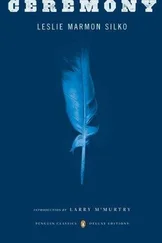The heat made the workers more thirsty than ever — the beer business boomed. Candy’s silent partner was his boss, Mr. Wylie; they’d worked together for a number of years from project to project. Wylie came down every evening around sundown to count the empty beer bottles; he liked to have an idea of how much money was taken in each day. After the count, Sister Salt and the Chemehuevi twins washed the bottles and boiled them before they were refilled with fresh brew.
Candy did not allow anyone else to lift the lids on the brewing barrels, and he checked them every day, sniffing at them and tasting them to decide which batches were ready to bottle. The workers joked Candy used river water to make his beer, but he took great care to haul fresh well water from Parker for his beer. He went all the way to Needles to the railroad freight office to pick up the special yeast and hops shipped from Albuquerque. Candy watched the brewing closely because beer was the staple of his business; without beer, the gamblers couldn’t hear those voices that urged them to roll the dice again to see how lucky they were. Those voices they heard were the spirits of the alcohol, and Candy tended those spirits very carefully so none were offended. If the brew was bottled too late, it was flat and yeasty; but if it was bottled too soon, too much pressure built up and the glass bottles exploded. Candy left the wine and moonshine to the bootleggers who drove in from Needles or Prescott; wine and distilled spirits took too much time to make.
Candy worried if the heat got any worse, the yeast in the brewing barrels would die; so he instructed Sister Salt and the Chemehuevi sisters to wrap the oak barrels in layers of burlap sacks soaked in the river. Sister Salt loved the excuse to splash around in the warm water, which was still cooler than the air. The moisture evaporated so fast that for a little while her skin felt cool and delightful.
Big Candy kept his word. On one of his weekly trips to Parker he went to the office of the reservation superintendent and made a written inquiry about Indigo. He was told the inquiry must be sent to the Indian Bureau of the War Department, in Washington, D.C.; that would take months. When Candy told Sister, she began to cry from anger and frustration — they’d never find Indigo if they had to ask Washington! But Candy told her to be patient, and he worked on composing a letter, night after night, even when he was so tired he fell asleep at the table. Sister Salt loved him most then, when he tried so hard to help her find Indigo. He was saving money for the train tickets; they’d go to Riverside if necessary. They’d find that girl!
Now the river was unrecognizable — rechanneled and trapped into narrow muddy chambers outside its old bed. The poor cottonwood trees and willows were ripped out and plowed into mounds of debris, where their roots reached out plaintively like giant skeleton hands. Oh poor trees! I’m sad for you. Poor river! What have they done to you? Sister whispered softly.
Two shifts of men worked day and night to complete the dam and canal on schedule. Layers of fine dust settled over everything, even the food and the bedding, and there was always the noise — the scrape and clank of the earth-moving machines, the whinnies of the mules, and the shouts of the workmen. By night the construction site was lit by big coal oil torches that trailed ribbons of flame whenever the wind caught them.
Down at the casino and bar, Big Candy hung dozens of lanterns from the cottonwood trees and from the corners of the tent frames; every afternoon Sister Salt and Maytha and Vedna refilled the lanterns with coal oil; besides providing light, the lantern fumes kept away the mosquitoes. The lamps were their last task before they got off work, and they discussed what they would do that night. After baths they sometimes went to have a beer and see who was winning at dice or blackjack.
A distance away, up on the gravel terrace of the old floodplain, next to the construction camp and the site superintendent’s big tent, businessmen from as far away as Prescott and Yuma parked canvas-covered wagons filled with mattresses, and with white and black women who charged construction workers ten cents for fifteen minutes. Mr. Wiley required the wagons with the mattresses to be parked within sight of his tent so that he could keep count of the customers to be sure the businessmen didn’t cheat him out of his share. That arrangement was fine with Sister Salt and the twins — they still got more offers than they wanted to have sex for money. Big Candy warned them not to undercut the prices of the wagon women too much, or their managers, the businessmen from Prescott and Yuma, would complain to the authorities and get Mr. Wiley in trouble. Sister Salt and the others took the men into the tamarisks and willows on the smooth clean river sand, so they charged less. Their customers said they much preferred the sand to those smelly mattresses in the wagons. As long as Sister Salt and the twins worked hard at the laundry and brewery, how they earned money in their free time was their business; Candy didn’t interfere.
Big Candy loved women, and he said all a man had to do was to let a woman be and she’d love him all the more. Candy’s mother had been born into slavery, and after the emancipation she continued to reflect on her position as a slave and then as a free woman. Dahlia was six feet tall and weighed three hundred pounds, so when she talked, people listened, even her employer and his wife. “Wage slave,” she called herself and the others; no, they couldn’t be bought or sold anymore — now human beings were worthless, and anything worthless was left to starve.
At night in their cabin, Dahlia loved to tell the stories she heard as a girl about the Red Stick people who adopted the escaped African slaves. Even before the Indians ever saw an African, the old Red Stick dreamers described them and said they had powerful medicine that the people here could use. So they welcomed the fugitives when they appeared, and it wasn’t long before the Red Sticks were given some of this medicine, which allowed their warriors to move through the swamps as silently and swiftly as smoke. Heavy casualties were inflicted on the French soldiers by only a handful of warriors, and later they routed the British. Of course, the swamps’ quicksand and fevers were their powerful allies.
In Dahlia’s clan, they knew how to hunt and to cook, especially meat. As Big Candy told Sister Salt more than once, the person who prepares the food has more power than most people think. Candy grew up in the big kitchen where he helped his mother. That was why he preferred to work around women; he explained this to Sister Salt the night he returned from Needles with the Mojave woman. She wasn’t young but she wasn’t too old; she took one look at Sister Salt and the Mojave woman’s eyes clouded with hatred toward Sister. Big Candy only laughed when Sister complained to him later; he reminded her she didn’t work near the Mojave woman. He couldn’t let the Mojave woman go; she was a good worker. Business was booming and he needed every worker he had.
Money, money! Some nights the sound of coins seemed louder than the sounds of the earthmoving machines and woke Sister Salt two or three times during the night. She felt something or someone was about to come — maybe the letters Candy sent off would bring Indigo home — but she had not dreamed about Indigo or their mother for some time.
Right before dawn it got quiet for a while, and that’s when she got up to watch the earth. She walked to the high sandy hill above the river and looked all around: she could see how the vegetation would grow back someday, and no trace of the construction camp would remain. Even their dam would fill up with sand someday; then the river would spill over it, free again.
Читать дальше












